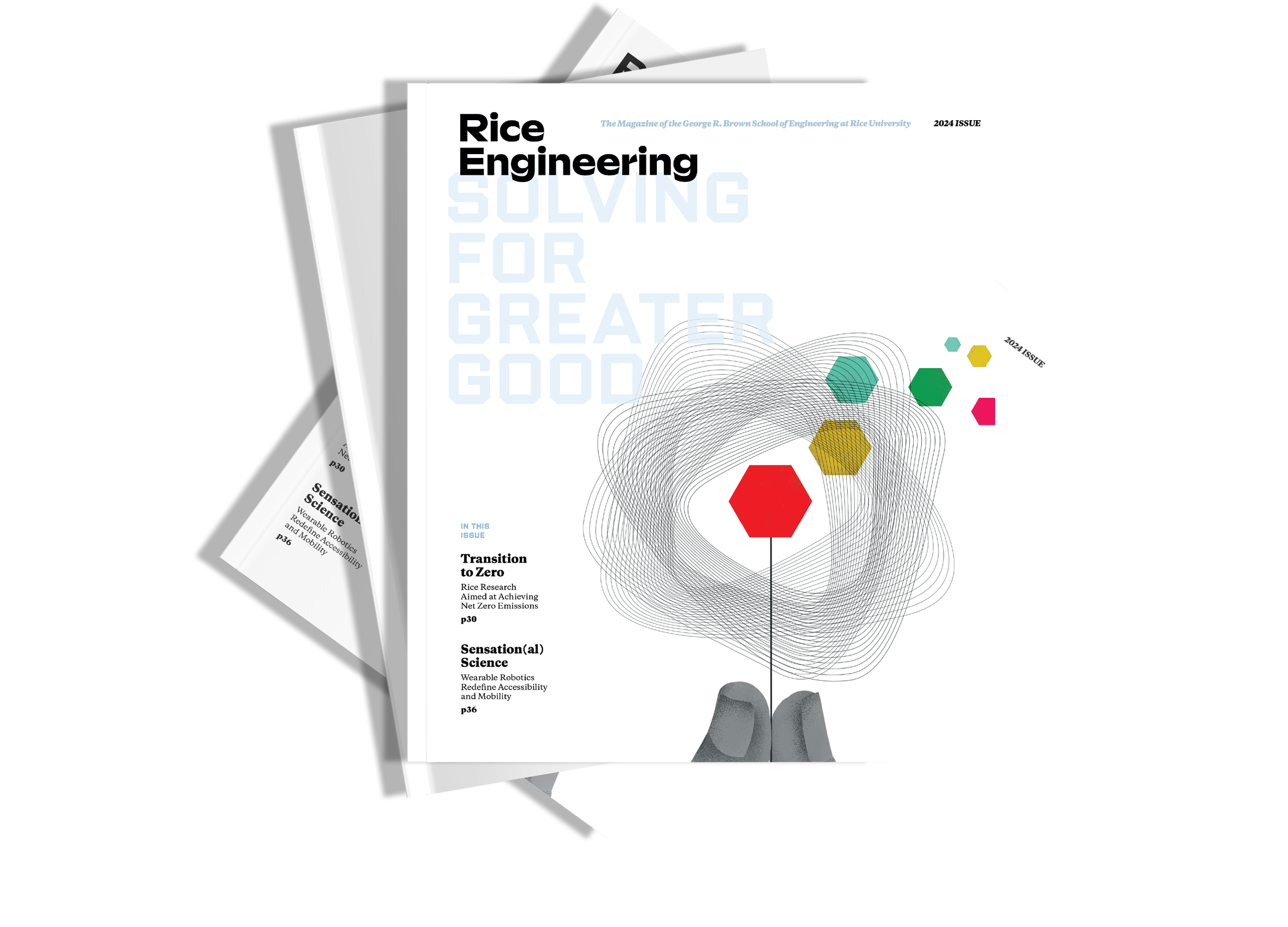
The spring 2024 issue of Rice Engineering Magazine is here!
At Rice Engineering, we are driven by a passion for innovation and a commitment to responsible engineering practices. It’s with great excitement that we unveil the new design of Rice Engineering magazine, which underscores our dedication to excellence in research, education, and service. The 2023-24 issue is full of news about how Rice Engineering is solving for greater good.
Question?
If you could time travel, which period of history would you visit to witness engineering innovation?
|
Eric Breyer I would travel to the 1930s, a pivotal time for modern computation and mathematics. Alan Turing and Alonzo Church were shaping the foundations of computing with their groundbreaking theories of computation, and Gödel published his incompleteness theorems, contributing to a profound transformation in our understanding of mathematics and computation during that era. |
Kalil Erazo I would travel to the period of James Clerk Maxwell (1831-1879) or right afterwards. The work of Maxwell revolutionized not only physics but almost all of engineering with groundbreaking work used in most of our current applications.
|
|
Sebastian Good If I had long enough, I’d go see the innovations of the ancients — roads, arches, wheels. But to pack the best engineering punch into one lifetime, I’d hang out from 1900 to 1970 to see the birth of nuclear physics and nuclear engineering. If I had a time machine, maybe I could even manage the complexities of being in both the U.S. and the Soviet Union! |
Beatrice Riviere I would visit the Renaissance to see the many scientific discoveries made during that time, including the first microscope. Also, meeting Leonardo da Vinci would be inspiring! |
|
Wendy Hoenig I would travel to the second Industrial Revolution (circa 1870-1920) to witness the full implementation of the railroad and heavy machinery manufacturing (steel, iron). The engineering and innovation of that time period drove significant productivity resulting in new processes for products such as automobiles, planes, and trains. These inventions allowed people to move further and travel faster than ever before, opening new employment opportunities for many. |
John R. Treichler I would visit the period between 1765 and 1865 in Britain and the U.S. to see how the use of steam for power replaced historical dependence on wind, water wheels, and horses. This was important because steam provided the power needed for the industrial revolution and high speed transportation, and its use opened the door to using math and science (thermodynamics) to design and build economically important infrastructure.
|
|
George W. Webb III As the son of a World War II veteran, I would love to have been part of the vital innovations that helped win the deadliest war in history. From the radio and radar innovations that allowed Great Britain to defeat the Luftwaffe, to the computing breakthroughs at Bletchley Park that helped crack German codes, to the Manhattan Project which shortened the war dramatically and saved many lives (including most likely my father’s), Allied technology development was unprecedented in its urgency, in the scale of collaboration, and in the enormity of what was as stake. Those historic efforts were not only crucial to victory; they also helped create the research infrastructure that continues to drive so much innovation today. |
Katie Hart I would travel to the 1960s to be a part of the Space Race. I’ve always been fascinated not only by the rate at which technology was advancing, but also by the social and political context surrounding the innovation. I’m also inspired by the women who worked to make these advancements possible and would love to meet them! |
NEXT QUESTION:
If you could collaborate with any fictional character on an engineering project, who would it be, and what would you create together?
Send responses to the editor: Rice Engineering Magazine, Rice University MS 364, PO Box 1892, Houston, TX 77251 or email engrnews@rice.edu.
